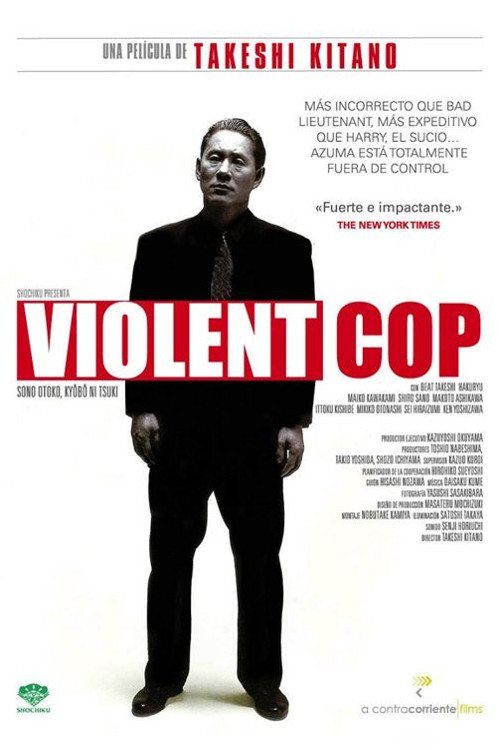Japanese comedian Takeshi Kitano made his foray into acting and film direction –something he’d become arguably more known for as opposed to his comedy in the coming decades – with his 1989 directorial debut, “Violent Cop.”
The film follows Azuma, a detective who lives with his disabled sister and is engulfed by debt. He has a tendency to enact justice in whichever way he seems appropriate, often breaking laws in order to enforce them.
Despite the movie’s darker tone, there are still scenes that come off as comedic in some manner, such as Azuma awkwardly trying to apprehend a criminal and eventually running him over. Though, the humor comes off a lot drier than anything else, feeling almost like it’s portraying an actual incident of a cop fumbling to take down a criminal.
Towards the last act of the movie, the tone takes a major shift and loses any humor it offered. The last act ends up becoming unbelievably depressing and disturbing, a sort of tone quite a few of movies he would continue to make would take.
And just as “Violent Cop” gives us a look into the types of story beats and tones Kitano’s movies would hit in the future. It also gives us a look into what would become Kitano’s signature directing style.
He would become known stylistically for his long, unbroken shots that slowly develop into what they intend to show. That, or shots that linger on a happening for a long while in order to emphasize aspects of the scene, such as the emotional or thematic aspects of what the scene is attempting to get at.
Many of these lingering shots would also often comprise of a character’s face, meaning to emphasize the emotions that the character is feeling via deep examination by the viewer.
It’s this sort of directing style that makes Kitano’s movies feel a lot more real, almost like the viewer is witnessing real events in such a way that one would experience them if they were there.
“Violent Cop” doesn’t quite hit the emotional chords that some of his other films would hit, and it also appears clear that Kitano was still developing his style, the film comes off competent and confident enough that it still works. It is a great film front to back, though the final act can be a little disheartening and hard to watch. Though, if anything, it just speaks to how grounded and real Kitano’s directing style is.
Rating: 8/10




